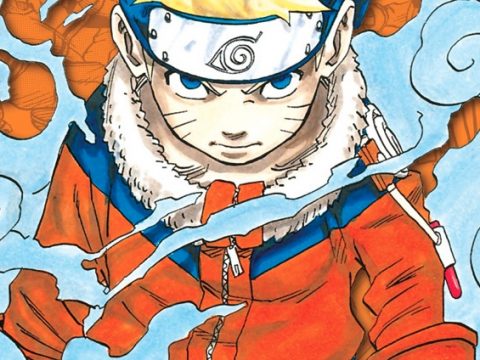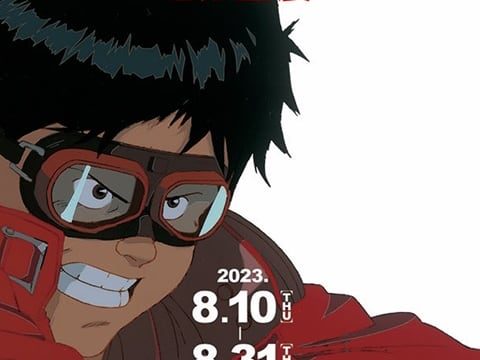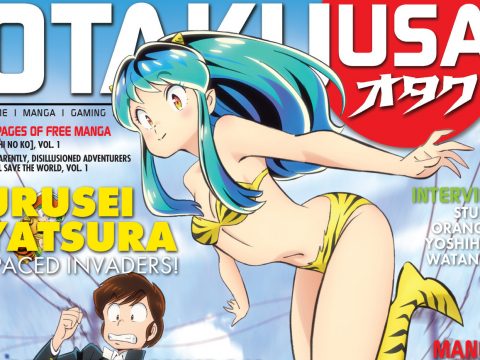Katsuhiro Otomo has always had it kind of rough. That’s not to say he’s living a transient life on the skids, but there aren’t many other creators out there standing in the booming shadow of a single piece of work (or, in his case, two distinct versions of said work). No matter the degree of subsequent successes, the greater question always hangs on the tongues of audience members: is it as good as Akira? Steamboy sure wasn’t, but it’s kind of an unbalanced comparison no matter how you shake it.
This goes doubly so for Mushi-Shi (2006), so let’s do our best to put it in its own context as a live-action adaptation of Yuki Urushibara’s manga, which was itself adapted into a 26-episode anime in 2005. Otomo does his darndest to capture that strange ethereal quality that makes both versions of Mushi-Shi so fascinating, and the result is a curious brew that misses the mark in some ways, while still managing to raise some interesting questions and create a mystical aesthetic.
Gray-haired wanderer Ginko knows nothing of his past, though we’re exposed to bits and pieces of his origin throughout. Thus, he drifts, applying his skills as a Mushi-Shi (Mushi Master) to help people and rid them of whatever ails may be dragging them down in life, from an inexplicable sickness to a sudden bout of blindness. In fact, the Mushi themselves, curious wisp-like bug beings that they are, aren’t far separated from, say, an actual virus if one could see it manifested in almost alien form.
Ginko is able to both see and remove them through various methods. This occupation hits close to home when he comes to the aid of an ailing friend, infected after she was told the story of Mushi known as Tokoyami, and a special variety that share a name with our protagonist. This unique case is going to take a good deal of the skills Ginko has at his disposal, and the tale that triggered this all to begin with may have more to do with his past than he knows.
I can’t help but feel that Mushi-Shi, in this format at least, would work better as an episodic tale; maybe a live-action mini-series or something to that effect. As a standalone movie, it’s a little too directionless, and the serialized structure seems suited to following Ginko around on a case-by-case basis like a mythical procedural drama. Of course, it could be argued that this is the entire point of Otomo’s film, its meandering nature reflecting that of Ginko himself, but I still think a more focused tale would have served him better in the end.
On the other hand, Mushi-Shi looks fantastic as a film, grain and all, with a warm appeal to it that wouldn’t translate to the television screen. Even the frequent digital effects mesh fairly well with the overall presentation, making for a much more authentic viewing experience than a lot of live-action manga/anime adaptations of recent years.
One aspect in which the film does retain focus is in the character of Ginko, played here by Joe Odagiri (Shinobi: Heart Under Blade, Azumi), who sports the bum-eye-covered-by-silver-locks look well. Mushi-Shi is more of an intense study of the lead than it is a pontification on the Mushi themselves, what role they play in our world and how we as humans are ultimately affected by their presence. Odagiri handles this responsibility with a subtle grace, and I don’t think Mushi-Shi would be nearly as strong without him in the lead.
Even so, nothing is taken all the way, and the film ends up culminating in what amounts to a series of incomplete thoughts. It’s a beautiful-looking exercise in solemnity, but the audience—especially those unfamiliar with the original material—will likely only walk away with more questions. Setting up a dialogue among viewers is never a bad thing, but it helps to give them a little more to run with that isn’t dependent on accessing a preexisting catalogue of material.
Mushi-Shi isn’t likely to be a gateway that guides newcomers back to the work of Urushibara, but it’s worth a gander for those that like their movies to burn a little more casually than most, and are open to more than a little ambiguity. For everyone else already invested in the world of Ginko and the Mushi, consider this a calming companion piece.
Studio/Company: FUNimation
Available: Now
Rating: TV14
All images © 2006 “MUSHI-SHI” FILM PROJECT







